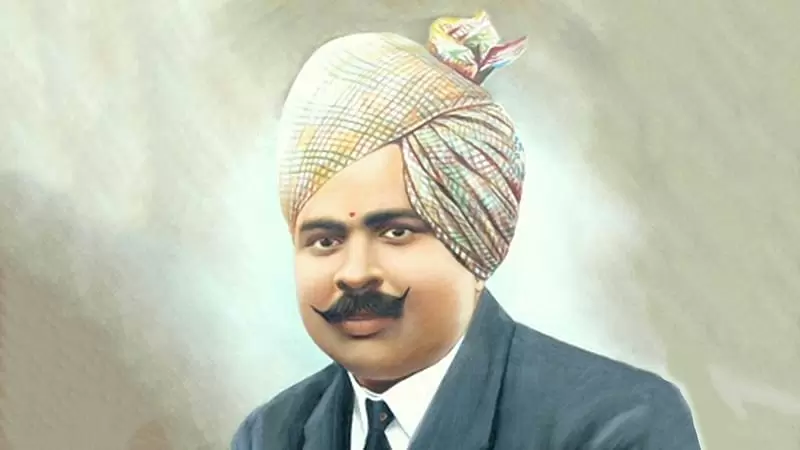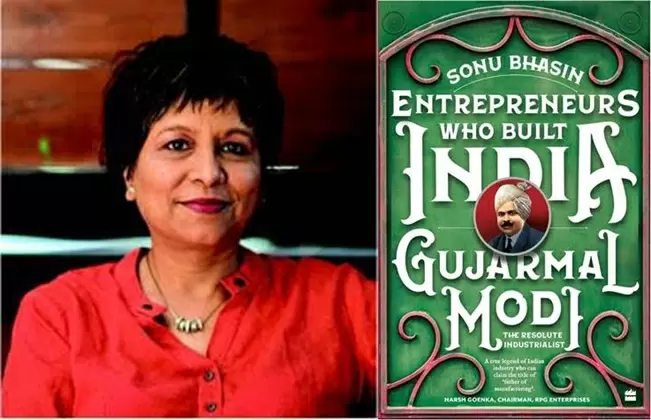Banished for refusing a drink, how Gujarmal Modi went on to build an industrial township and a business conglomerate
New Delhi
05-February-2022
Vol 13 | Issue 5
The year was 1932, and a young man had just been banished from the state of Patiala. His crime? He had refused a glass of wine in a celebratory party at the Patiala Palace. It had not mattered to the maharaja that the man was a teetotaller.
The ban proved to be a boon as the 30-year-old left Patiala and created one of the largest business empires in India. Looking for a new location to set up his factory, Gujarmal Modi zeroed in on a sleepy village, Begumabad, on the outskirts of Delhi.

| Gujarmal Modi landed in Begumabad after he was banished from Patiala and created one of the largest business empires in India (Photo Courtesy: Modicare) |
It is here that the seeds of the Modi Group were sown. Starting with a sugar mill, he established a conglomerate with businesses including tyres, textiles, copy machines, cigarettes, pharmaceuticals, oil and steel, to name a few.
Sonu Bhasin's "Gujarmal Modi: The Resolute Industrialist" (HarperCollins) is the story of an ambitious young man who saw adversity as an opportunity and went on to create history. In the process, he set up some of the finest factories, created an industrial town that was way ahead of its time, generated large-scale employment and gave Indian manufacturing new wings.
Gujarmal Modi's ten per cent allocation from earnings towards social responsibility, long before it became a corporate buzzword, and human resource initiatives became benchmarks in the history of Indian business.
A treasure trove of learnings for modern-day entrepreneurs, this book celebrates the man and his vision, grit, determination and spirit of entrepreneurship.
The first book of a series titled "Entrepreneurs Who Built India", it captures the pre-liberalization days and presented the landscape, culture and history of that period
"Most industrialists and promoters dream of building a great business empire. Gujarmal Modi was different. He dreamt of building an industrial town. And he achieved his dream in merely thirteen years. His story is both interesting and inspiring and will help the managers and entrepreneurs of today realise that obstacles are just bumps on the path to success," says the author.
"There are many industrialists and promoters who achieved their glory and success in the pre-liberalised India but are in danger of being forgotten as the spotlight chases the current successful ones. The series is an attempt to bring the spotlight back on these promoters as it is they who worked to lay the foundation of Indian economy and industry," the author adds.
"So many entrepreneurs started in the pre-independence era and created large industries. In the process, they generated mass employment and gave a newly formed nation much-needed wings to fly," says Sachin Sharma, Executive Editor, HarperCollins India.
"Running a business in that era wasn't easy either, but these entrepreneurs were undeterred and built the India of today," Sharma adds.
As the Modicare website observes: “Gujar Mal Modi was far ahead of his time and believed that strong people build a stronger country. Dwelling on this thought, he made sure that every worker of the sugar mill was allotted a house which was a first then and even today.
“He changed the entire landscape of Modinagar by making the town self-sufficient with modern housing, schools, and college amenities.
“The story of quiet resilience and development of this once laidback town is a testimony to the determination of Rai Bahadur Gujarmal Modi.”

Sonu Bhasin is one of the early and senior women professionals in the corporate world. She has led various businesses in senior leadership positions during her career, including when she was a part of the TAS (Tata Administrative Service), ING Barings, Axis Bank, Yes Bank and Tata Capital Limited.
Bhasin is an independent director on boards of well-known and reputed domestic and multinational companies. As part of her work now, she focuses on family businesses, and is the founder of FAB (Families and Business)..
She is a family business historian, a business author and the editor-in-chief of Families & Business magazine. She has been named one of the Global 100 Most Influential Individuals for family enterprises in 2020.
Bhasin has a B.Sc. (Hons) degree in mathematics from St. Stephen's College, Delhi University, and an MBA from the Faculty of Management Studies, Delhi University. – IANS with inputs from TWL Bureau














